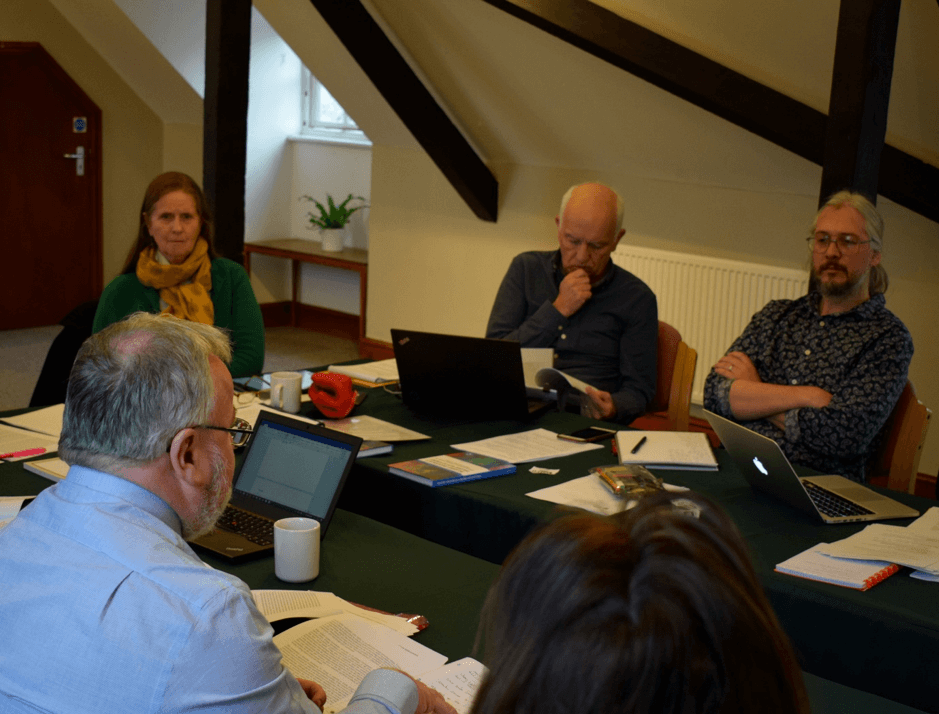Recommendation 7 outlines some ideas that have been in the forefront of RE leaders’ minds for some time, namely funding and providing CPD!
There are many reasons why continuing professional development (CPD) is vital to the success of RE and indeed any subject or career.
Teaching is a fabulous job, it is a vocation, it is a privilege and yet it is underfunded, undervalued by those who govern and now is failing to retain trained professionals particularly in the first five years of their career.
So why is CPD essential?
Well firstly we need to think about the context of RE teachers and leaders. I have led RE network meetings for many years in Key Stages 1-4 and have met some dedicated, hardworking, committed RE teachers. Some were RE leaders by choice while many inherited the post and some even were chosen in absentia including one teacher who was ‘appointed’ RE leader when she nipped to the toilet in a staff meeting. She, like many others in the primary phase, had received a maximum of 3 hours training in RE during her 4-year teaching degree… Focus on that for a moment, 3 hours in 4 years.
We say our children deserve the best but how can you be the best RE teacher with little training and few opportunities to receive expert coaching, mentoring and leadership input?
Why change things now? In today’s world we need to make sure that our children are encouraged to question and challenge injustice, to learn to understand and celebrate who they are, who other people are and cherish new experiences and interactions with others from different places and cultures. RE is the subject that can do this unlike any other but RE skills need to be developed, nurtured and practiced. We do not want our young people to turn into people who stay in one place, get their worldview from the mass media or are permanently welded to mobile devices so much that a proper conversation is beyond them.
CPD brings people together, if you are an RE leader you are often alone, how good is it to meet with other RE leaders to share experiences, develop schemes of work together, plan visits to places of worship etc? Just look at this year’s Strictly RE event – nearly 350 RE teachers from all over the UK meeting together on a Saturday in January to talk about RE – phenomenal!
CPD opens doors in careers. RE should be valued, as a subject it should be championed as it develops more practical life skills than any other subject. Yet still it is marginalised.
So, recommendation 7 asks for funding to cover
- national programme of online and face-to-face CPD, including an online platform with both massive open online courses (MOOCs) and static resources
This is so important as it would give boost to the status of RE. It would show that a Government had decided to commit to equipping teachers so they could help young people develop into the best human beings they could be.
The Commission says that the government should commit funding to a five-year programme of supporting and developing training. That there should be a combination of face to face and online events and that resources should be developed. All of these are absolutely spot on, but we have known this for years and many of us have been struggling to provide this with very little support. Local authorities rarely have advisors anymore and advanced skills funding was withdrawn – for many teachers they are now alone unless they try to reach out and make connections themselves.
Face to Face events would show the educational world how important RE is, there still needs to be more done to recognise the many transferrable life skills that high quality RE develops. Online communities could help to foster support networks where ideas and planning can be shared – harnessing new technologies can help the subject flourish – programmes need to be produced to maximise this.
- the development of curriculum materials and supplementary guidance, including resources for local studies
How do you become the best you can be? You must learn to value yourself, value your surroundings, your community and context. Developing local studies will help understand why things are and will lead to ideas about how to improve things, do this locally and it will mean a better environment for us to live in, this will then spread further afield. We do not live in isolation, we should not just shut the front door and be oblivious of our neighbours, our neighbourhood, our local history and modern developments.
We need to be involved, we should not shake our heads as no one is improving things, we should lead the improvements not point fingers.
Developing and preserving our area will help build pride in the area, this then should lead to welcoming people in rather than being suspicious of outsiders.
An example, I am originally a Midlander and lived there until I was 13 when I moved to the Bournemouth area due to my parents work. 40 years later although I love living by the sea, I still consider myself a Midlander and am always moved by the warmth and friendliness of the Midlands when I am back there. The mix of cultures always fascinated me and still does. Living there gave me a lifelong love of diversity and trying new experiences leading me into RE teaching and a desire to travel.
One of my favourite holiday destinations is the Orkneys, breathtakingly beautiful, full of natural splendour, rugged coasts and archaeological wonders. Not a cheap destination but the people are so welcoming, so proud of their islands and heritage. They always ask us when we are going to move up there, they are genuinely keen to embrace visitors. Yet so many people I know have no idea where the Orkneys are and are stunned to hear that they have any infrastructure at all.
When did we stop wanting to learn about where we are? When did finding out about the world lose appeal?
So yes, we need resources, curriculum materials and the opportunity to adapt and personalise these – the opportunity to engage with local communities and celebrate what is on our doorstep! Through this engagement we would hope to find the desire to explore other areas and learn more. At a time where our borders are being closed, we need to be more open than ever.
The final part is
- support for local face-to-face CPD including teacher hubs and networks, with specific allocations for areas of opportunity and of a sufficient level to cover adequate professional advice and support.
This is very close to my heart, I love running networks for teachers, I did this when I was a teacher and now that I advise I always try to keep in mind the following… There must always be a focus on teaching and learning, some sharing of experiences and resources, some opportunity to work together, to vocalise why and what help is required. Advisers must be working hard to ensure what they provide is practical and useful.
To conclude, without CPD there will be stagnation or even worse deterioration. I have seen some brilliant teachers leave teaching in the last five years, not because of children but because of either data obsessed managers, a lack of work life balance or just a feeling of futility. That teaching should ever appear futile is a crime and our leaders are accountable.
Investing in CPD is investing in people.
Investing in RE CPD is investing in our children and students, investing in equipping them with the skills needed to change their world for the better, in the chance to be the generation that builds bridges rather than burns them down like previous ones.
It always comes down to money, however a considerable amount of good will exists in the world of RE, people already work hard for little financial reward so a commitment from government would surely reap greater rewards in the long term.
The commission’s recommendation 7 whilst essential, it is not a bolt out of the blue, we have known this for years, but if, finally, something good comes from it then the future stands a chance.

